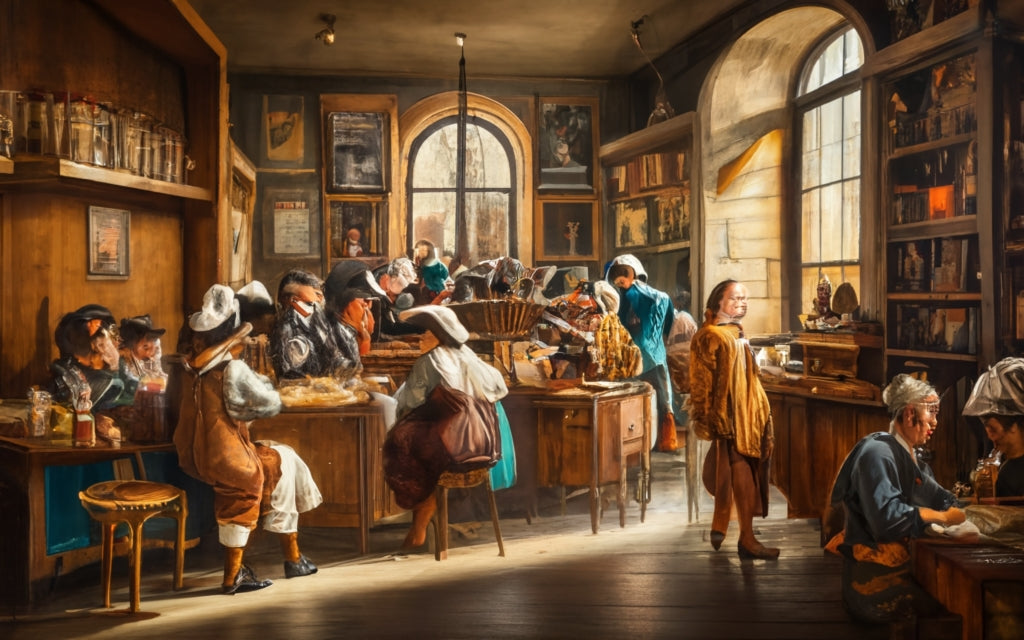Brewing Up a Timeless Tradition
In the bustling streets of 17th-century England, a peculiar yet fascinating phenomenon was brewing—a culture that would forever change the way people gathered, discussed ideas, and savored their favorite caffeinated beverage. At the heart of this culture lay the enigmatic "Coffee Caravan," a concept that would not only give birth to the modern coffeehouse but also earn the nickname "penny universities" for the intellectual riches they offered. In this exploration of history and coffee culture, we journey back in time to understand the origins of this captivating phenomenon and how it continues to influence our coffee experiences today.
The Rise of Penny Universities
The 17th century was a time of transformation, where a burgeoning middle class sought to redefine their role in society. Amidst this societal shift, coffeehouses emerged as more than just venues for exotic brews; they became crucibles where culture and social norms converged.
In an era when alcohol was the primary social lubricant, coffeehouses introduced a refreshing alternative. These establishments served not just as purveyors of coffee but as sanctuaries for the exchange of ideas. They were places where individuals could savor a cup of coffee while engaging in thought-provoking discussions—an endeavor considered revolutionary in a society where rigid social hierarchies were the norm.
The penny universities, as these coffeehouses came to be known, were hailed as democratic spaces. For the price of a cup of coffee, patrons gained entry to a world of knowledge that was previously confined to the elite. Intellectual curiosity thrived within their walls, transcending the boundaries of class and wealth.
Coffeehouses as Gathering Places
The appeal of the penny universities extended beyond their affordability. These coffeehouses served as bastions of inclusivity, where social norms were challenged and redefined. Unlike the exclusive gentlemen's clubs of the time, coffeehouses welcomed individuals from all walks of life.
Diversity was the order of the day in these coffeehouses. Within their hallowed halls, merchants rubbed shoulders with poets, and scholars conversed with craftsmen. It was a melting pot of ideas and backgrounds, a place where the prevailing social norms of the 17th century were more bent, but not broken.
The egalitarian nature of coffeehouses fostered a sense of belonging. Patrons reveled in the intellectual debates, the passionate discussions, and the communal spirit that filled the air. These were places where people from disparate backgrounds came together as equals, united by their shared love for coffee and their thirst for knowledge.
As coffeehouses embraced this diversity, they transcended their roles as mere beverage providers. They became crucibles where new friendships were forged, ideas were challenged, and the seeds of enlightenment were sown. Within these unassuming establishments, society was reshaped, and the norms of the time began to evolve.
In the hushed corners of the penny universities, history was quietly but resolutely rewritten. The intellectual fervor that took root within these walls would go on to reshape the world, one cup of coffee and one conversation at a time.

